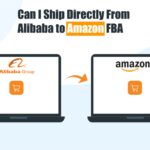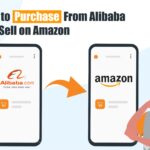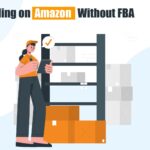Are you an Amazon seller seeking to escape the limitations of Fulfillment by Amazon (FBA) and venture into alternative strategies? Well, you are in luck! This blog post will explore the thrilling realm of selling on Amazon without FBA.
If you are curious about the advantages and disadvantages of selling on Amazon without FBA and wondering if it is suitable for your unique business model then stay tuned as we will uncover all the information to guide you on how to sell on Amazon without FBA.
Selling on Amazon Without FBA
Though Amazon’s Fulfillment by Amazon (FBA) program is a handy service that can take a lot of work off of your hands, it is not necessarily the right fit for every seller.
In this article, we will explore some of the pros and cons of selling without FBA, and help you determine if it is the right strategy for you.
Furthermore selling without FBA means that you will save on Amazon’s fulfillment and storage fees which can be quite substantial sometimes respective to product type. You will also have more control over your inventory and shipping process.
On the downside selling without FBA can be more work for you or might be expensive if you do not have your own storage place.
To answer this tricky question if selling on Amazon without FBA is great for you or not then we will have to analyze various factors and then do the cost-benefit analysis.
An alternative to FBA is FBM which needs time, effort, and money as well.
Comparison between FBA and FBM
| Factor | Fulfillment by Amazon (FBA) | Fulfillment by Merchant (FBM) |
| Cost | Higher upfront costs, but lower per-unit costs | Lower upfront costs, but higher per-unit costs |
| Effort | Less effort required | More effort required |
| Control | Less control over the fulfillment process | More control over the fulfillment process |
| Visibility | Higher visibility in Amazon search results | Lower visibility in Amazon search results |
| Customer service | Amazon handles customer service | You handle customer service |
| Time | Less time required | More time required |
Here is a more detailed breakdown of the costs and level of effort associated with each fulfillment method:
FBA
Upfront Costs:
The initial expenses of using FBA involve shipping your products to Amazon’s fulfillment centers and storing them in Amazon’s warehouses.
Cost per Unit:
The cost per unit with FBA covers picking, packing, and shipping your products to customers.
Efforts Required:
Utilizing FBA requires relatively low effort. Once your products are shipped to Amazon, you can rest assured that the fulfillment process is taken care of.
Control:
FBA grants you less control over the fulfillment process. Amazon handles all aspects, including picking, packing, and shipping your products.
Visibility:
FBA products enjoy greater visibility in Amazon search results. Amazon’s algorithms give FBA products a slight boost in search rankings.
Customer Service:
Amazon handles customer service for FBA products, handling inquiries, and returns.
FBM
Upfront Costs:
FBM has lower initial costs compared to FBA. You do not need to pay for shipping your products to Amazon’s fulfillment centers or storing them in their warehouses.
Cost per Unit:
FBM incurs higher per-unit costs than FBA. You will be responsible for shipping expenses to customers, as well as packing and handling costs.
Efforts Required:
FBM demands more effort than FBA. You will need to personally handle packing, shipping, and customer inquiries and returns.
Control:
FBM provides you with greater control over the fulfillment process. You have direct involvement in packing, shipping, and ensuring proper handling of your products.
Visibility:
FBM products have lower visibility in Amazon search results. Amazon’s algorithms do not give FBM products a search ranking boost.
Customer Service:
You will be responsible for customer service associated with FBM products, managing inquiries and returns.
What is Amazon FBA?
There are a few reasons why you might want to consider not using FBA (Fulfillment by Amazon). Maybe you do not like the idea of giving up control of your inventory, or maybe you are trying to cut costs. Whatever the reason is it is important to understand the pros and cons of selling without FBA before making a decision.
FBA vs FBM
The biggest advantage of selling without FBA (Which is called FBM) is that you will save on storage and shipping fees. You will also have more control over your inventory which can be helpful if you want to offer custom products or if you are selling fragile items.
However, there are a few downsides to selling without FBA. First, it will take longer for your customers to receive their orders since you will need to ship them yourself.
Secondly, you will need to handle customer service inquiries yourself.
Thirdly, you may miss out on some sales since Prime customers are more likely to buy from sellers that use FBA.
Thirdly, you may have difficulty ranking your products listed on the Amazon search results page if you are not using FBA as Amazon’s algorithm prefers to rank FBA products rather than FBM.
Fourthly, your products will be ineligible for Prime shipping, which could negatively impact your sales.
So should you sell without FBA It depends. If saving money is your biggest concern then selling without FBA might be a good option for you. However, if you value speed and convenience, then you might want to stick with FBA.
Is It Recommended To Sell On Amazon Without FBA?
Before we recommend anything to you, it is best to list down some attributes of the products that suit best the FBA model and products that suit the FBM model.
Fulfillment by Amazon (FBA)
FBA presents an effective strategy to expand your Amazon business and broaden your customer base. The following are some categories of Amazon products that are ideally suited for FBA:
Products Eligible for Amazon Prime Shipping:
Amazon Prime is a widely embraced membership program that provides free two-day shipping for qualifying items. By ensuring your products are eligible for Prime shipping, you can access a broader pool of potential customers.
High-Margin Products:
If your products have high-profit margins then you can use the FBA offer which can take care of shipping and customer service and you can concentrate on maximizing sales.
Small and Lightweight Products:
FBA proves the most economical for small and lightweight products. Since Amazon charges storage and fulfillment fees per unit. As larger and heavier products can incur higher shipping and storage costs.
Products in High Demand:
If your products are highly sought after then FBA can help you meet the demand while ensuring customer satisfaction, improved visibility, prime shipping, and higher buy box.
Leveraging Amazon’s extensive network of fulfillment centers, your products will be shipped swiftly and efficiently.
Look at the below product examples that align well with FBA
Books:
Books are an ideal fit for FBA due to their small size, lightweight nature, and sustained demand.
Electronics:
Electronics are also a suitable choice for FBA, given their potential for high profit margins and consistent demand.
Clothing:
While clothing can be a viable FBA product and it is crucial to consider the weight and size of the items when calculating costs.
Home Goods:
FBA is an excellent option for home goods, as they often yield high profit margins and experience consistent demand.
Check all the above attributes and also note if most of your competitors are using FBA then it would be better if you do the same.
Fulfillment by Merchant (FBM)
FBM presents a favorable choice for Amazon sellers aiming to exert greater control over their inventory, shipping, and customer service. The following are categories of Amazon products that are most suitable for FBM:
Products that are Large or Heavy:
FBM proves to be a more economical alternative for sizable or weighty items as Amazon applies a per-unit fee for storage and fulfillment.
Products that are Fragile or Necessitate Special Handling:
FBM empowers you with increased authority over the shipping process by ensuring the proper handling of delicate or intricately handled products.
Products that are Customized or Personalized:
FBM grants you more flexibility in the fulfillment process by facilitating easy customization or personalization of your products.
Look at the products that are particularly well suited for FBM
Furniture:
Furniture is an ideal product for FBM due to its large and heavy nature.
Plants:
Plants thrive under FBM as they necessitate delicate handling and may be prone to fragility.
Custom Jewelry:
FBM proves advantageous for custom jewelry since it readily allows for customization and personalization.
Recommendation
We recommend all sellers first look at the product attributes and then consider all other factors that we have mentioned earlier then choose between FBA and FBM.
However, we have seen better results if Amazon sellers use both models to some extent.








